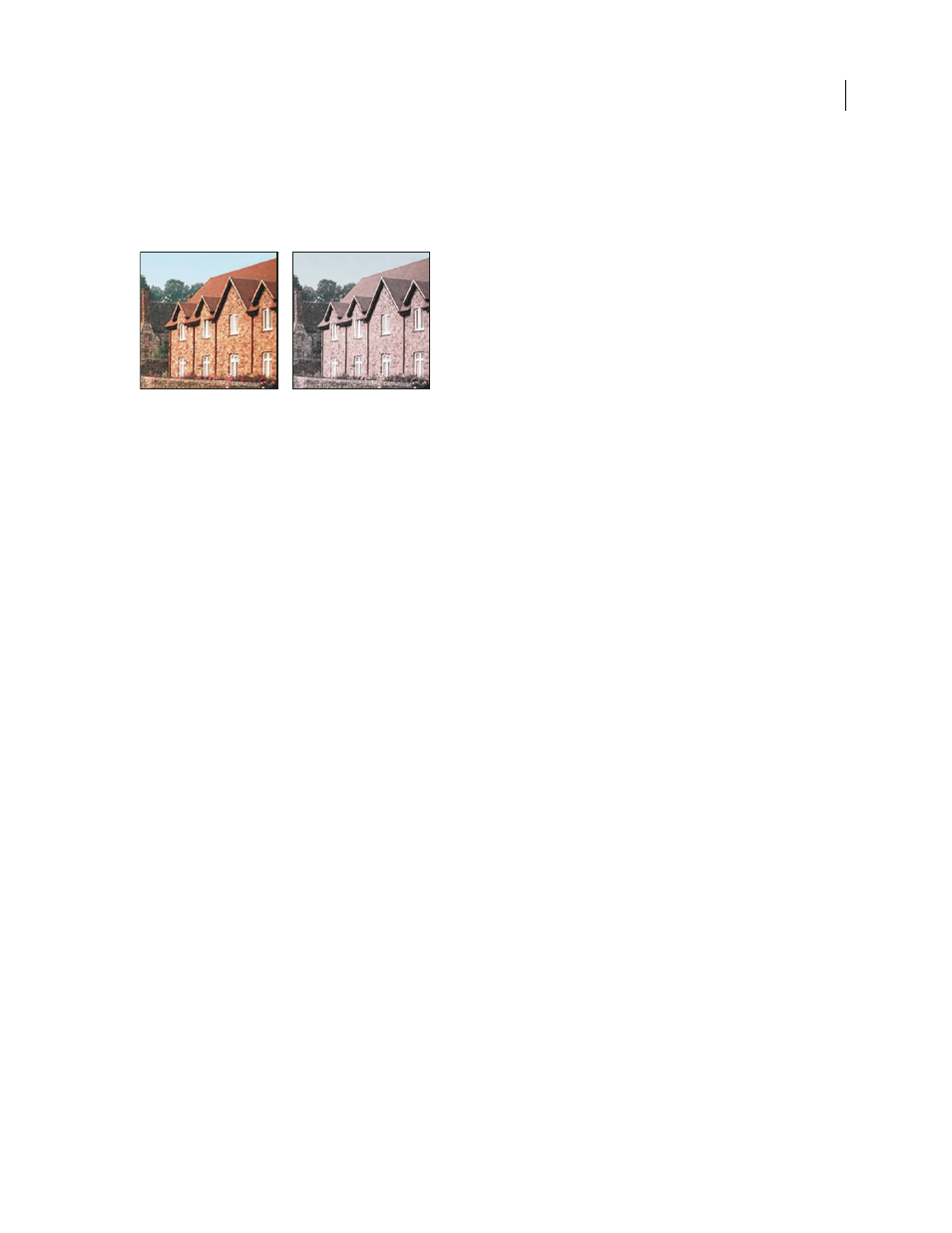Make selective color adjustments, Make selective – Adobe Photoshop CS3 User Manual
Page 188

PHOTOSHOP CS3
User Guide
181
Photoshop displays the total value of the source channels in the Total field. If the combined channel values are above
100%, Photoshop displays a warning icon next to the total.
5
(Optional) If you select and then deselect the Monochrome option, you can modify the blend of each channel
separately, creating a hand-tinted appearance.
Hand-tinted effect created by selecting (left) and deselecting (right) the Monochrome option
6
(Optional) Drag the slider or enter a value for the Constant option.
This option adjusts the grayscale value of the output channel. Negative values add more black, and positive values
add more white. A -200% value makes the output channel completely black; a +200% value makes the output channel
completely white.
Make selective color adjustments
Selective color correction is a technique used by high-end scanners and separation programs to change the amount
of process colors in each of the primary color components in an image. You can modify the amount of a process color
in any primary color selectively—without affecting the other primary colors. For example, you can use selective color
correction to dramatically decrease the cyan in the green component of an image while leaving the cyan in the blue
component unaltered.
Even though Selective Color uses CMYK colors to correct an image, you can use it on RGB images.
1
Make sure that the composite channel is selected in the Channels palette. The Selective Color command is
available only when you’re viewing the composite channel.
2
Do one of the following:
•
Choose Image > Adjustments > Selective Color.
•
Choose Layer > New Adjustment Layer > Selective Color. Click OK in the New Layer dialog box.
3
Choose the color you want to adjust from the Colors menu at the top of the dialog box. Color sets consist of the
primary additive and subtractive colors plus whites, neutrals, and blacks.
4
For Method, select an option:
Relative
Changes the existing amount of cyan, magenta, yellow, or black by its percentage of the total. For example,
if you start with a pixel that is 50% magenta and add 10%, 5% is added to the magenta (10% of 50% = 5%) for a total
of 55% magenta. (This option cannot adjust pure specular white, which contains no color components.)
Absolute
Adjusts the color in absolute values. For example, if you start with a pixel that is 50% magenta and add
10%, the magenta ink is set to a total of 60%.
Note: The adjustment is based on how close a color is to one of the options in the Colors menu. For example, 50%
magenta is midway between white and pure magenta and receives a proportionate mix of corrections defined for the two
colors.
5
Drag the sliders to increase or decrease the components in the selected color.
